The vestibular nerve plays a critical role in our ability to hear and maintain balance. When this nerve is damaged, it can have a profound impact on our auditory functions. In this article, we will explore the complexities of living with a damaged vestibular nerve and discuss various aspects related to this condition, including its anatomy, causes, symptoms, medical interventions, and coping strategies. It is important to note that while we provide information based on expert knowledge and experience, consulting with a healthcare professional is essential for an accurate diagnosis and appropriate treatment.
Understanding the Vestibular Nerve
The vestibular nerve is one of the two branches of the vestibulocochlear nerve, also known as the eighth cranial nerve. It is responsible for transmitting sensory information related to balance and spatial orientation from the inner ear to the brain. The vestibular nerve works in conjunction with the cochlear nerve to facilitate both hearing and balance.
Anatomy of the Vestibular Nerve
The vestibular nerve consists of two main components: the superior and inferior vestibular nerves. These nerves are connected to cristae ampullaris and maculae, which are specialized structures within the inner ear. These structures contain hair cells that detect changes in head position and movement.
The superior vestibular nerve is responsible for transmitting information related to the movement of the head in the vertical plane, while the inferior vestibular nerve carries information about horizontal movement. These two components work together to provide a comprehensive picture of an individual’s spatial orientation and balance.
The cristae ampullaris are located within the semicircular canals of the inner ear. These canals are filled with fluid and are responsible for detecting rotational movement of the head. When the head moves, the fluid within the semicircular canals also moves, causing the hair cells in the cristae ampullaris to bend. This bending of the hair cells generates electrical signals that are transmitted through the vestibular nerve to the brain, allowing us to perceive changes in head position and movement.
The maculae, on the other hand, are located within the utricle and saccule of the inner ear. These structures are responsible for detecting linear acceleration and changes in head position relative to gravity. Similar to the cristae ampullaris, the maculae contain hair cells that respond to movement. When the head moves, the movement of the otolithic membrane within the utricle and saccule causes the hair cells to bend, generating electrical signals that are transmitted through the vestibular nerve.
Function of the Vestibular Nerve in Hearing
While the primary function of the vestibular nerve is to maintain balance, it also plays a role in hearing. It works in conjunction with the cochlear nerve to transmit auditory signals from the cochlea to the brain. This allows us to perceive sound and process it appropriately.
The cochlea is another structure within the inner ear that is responsible for converting sound waves into electrical signals. When sound waves enter the ear, they cause the fluid within the cochlea to move, stimulating the hair cells located along the basilar membrane. These hair cells then generate electrical signals that are transmitted through the cochlear nerve and vestibular nerve to the brain, where they are interpreted as sound.
It is important to note that while the vestibular nerve and cochlear nerve are closely related and share some anatomical structures, they serve distinct functions. The vestibular nerve primarily transmits information related to balance and spatial orientation, while the cochlear nerve is responsible for transmitting auditory signals. However, both nerves work together to provide us with a comprehensive understanding of our surroundings and enable us to navigate the world around us.
Causes and Symptoms of Vestibular Nerve Damage
Vestibular nerve damage can be caused by various factors, including viral infections, head trauma, exposure to ototoxic medications, and certain medical conditions such as Meniere’s disease or acoustic neuroma. Recognizing the symptoms associated with vestibular nerve damage is crucial in seeking appropriate medical attention.
The vestibular nerve, also known as the eighth cranial nerve or the vestibulocochlear nerve, plays a vital role in maintaining our sense of balance and spatial orientation. It transmits information from the inner ear to the brain, allowing us to perceive and navigate our surroundings accurately. When this nerve is damaged, it can lead to a range of debilitating symptoms that can significantly impact a person’s quality of life.
Common Causes of Damage
One of the most common causes of vestibular nerve damage is viral infections, such as vestibular neuritis or labyrinthitis. These infections result in inflammation of the nerve, leading to a disruption in its normal functioning. The viral particles invade the inner ear, causing irritation and swelling, which can affect the transmission of signals to the brain. This disruption in communication can result in symptoms such as dizziness, vertigo, and imbalance.
In addition to viral infections, head trauma can also cause damage to the vestibular nerve. A severe blow to the head, such as from a fall or a car accident, can result in injury to the inner ear structures, including the vestibular nerve. The force of the impact can cause the nerve fibers to stretch or tear, leading to dysfunction and subsequent symptoms.
Exposure to certain medications can also contribute to vestibular nerve damage. Ototoxic medications, which are known to have harmful effects on the inner ear, can disrupt the normal functioning of the vestibular nerve. These medications include certain antibiotics, chemotherapy drugs, and high doses of aspirin. It is important to be aware of the potential side effects of these medications and to consult with a healthcare professional if you have concerns.
Furthermore, certain medical conditions can predispose individuals to vestibular nerve damage. Meniere’s disease, for example, is a chronic condition characterized by recurring episodes of vertigo, hearing loss, and tinnitus. The exact cause of Meniere’s disease is unknown, but it is believed to involve an abnormal buildup of fluid in the inner ear, which can put pressure on the vestibular nerve and lead to damage. Another medical condition associated with vestibular nerve damage is acoustic neuroma, a benign tumor that grows on the nerve responsible for transmitting sound and balance information to the brain.
Recognizing the Symptoms
The symptoms of vestibular nerve damage can vary from person to person. Common symptoms include dizziness, vertigo, imbalance, difficulty in concentrating, nausea, and hearing loss. Individuals may experience a sensation of spinning or whirling, making it challenging to maintain stability and perform daily activities. The severity and frequency of these symptoms can also vary, with some individuals experiencing occasional episodes and others having chronic symptoms.
It is important to consult with a healthcare professional if you experience any of these symptoms to determine the underlying cause and receive appropriate treatment. A thorough medical evaluation, including a physical examination and possibly additional tests such as audiometry or imaging studies, may be necessary to diagnose vestibular nerve damage accurately. Treatment options can range from medications to physical therapy, depending on the underlying cause and severity of the condition.
In conclusion, vestibular nerve damage can have a significant impact on an individual’s well-being and daily functioning. Understanding the various causes and symptoms associated with this condition is essential in seeking timely medical attention and appropriate management. If you suspect that you may be experiencing vestibular nerve damage, do not hesitate to reach out to a healthcare professional for evaluation and guidance.
The Impact of Vestibular Nerve Damage on Hearing
When the vestibular nerve is damaged, it can have a significant impact on our ability to hear and process sound accurately. Understanding these impacts is essential in managing and coping with the challenges associated with this condition.
The vestibular nerve plays a crucial role in transmitting signals from the inner ear to the brain, allowing us to maintain balance and spatial orientation. However, when this nerve is damaged, it can disrupt the intricate system that enables us to hear and interpret sounds.
Changes in Hearing Capabilities
Vestibular nerve damage can result in varying degrees of hearing loss, ranging from mild to profound. The extent of hearing loss depends on the severity and location of the nerve damage.
Individuals with vestibular nerve damage may experience difficulties in perceiving sounds accurately. They may struggle to distinguish between different frequencies or have trouble understanding speech, especially in noisy environments. This can make everyday activities, such as engaging in conversations or enjoying music, challenging and frustrating.
Furthermore, sound localization, the ability to determine the direction from which a sound is coming, can be impaired. This can lead to confusion and difficulty in identifying the source of sounds, potentially impacting safety and situational awareness.
Another aspect affected by vestibular nerve damage is the ability to filter out background noise. Background noise can become overwhelming and make it challenging to focus on specific sounds or conversations. This can lead to increased fatigue and mental strain as individuals struggle to concentrate and understand what is being said.
Psychological Effects of Hearing Loss
Hearing loss can have psychological and emotional consequences. Individuals may experience social isolation, communication difficulties, and reduced quality of life.
When hearing becomes compromised, it can lead to feelings of frustration, embarrassment, and self-consciousness. Individuals may withdraw from social situations, avoiding gatherings or conversations where they may struggle to hear or participate effectively. This can result in a sense of isolation and loneliness, impacting mental well-being.
Communication difficulties can also arise, as individuals with vestibular nerve damage may find it challenging to follow conversations, leading to misunderstandings and miscommunications. This can strain relationships and create barriers to effective communication, both personally and professionally.
Addressing the psychological impacts of hearing loss is an essential part of adapting to life with a damaged vestibular nerve. Seeking support from audiologists, therapists, and support groups can help individuals navigate the emotional challenges and develop coping strategies to enhance their overall well-being.
Medical Interventions for Vestibular Nerve Damage
Medical interventions for vestibular nerve damage aim to address the underlying cause, alleviate symptoms, and improve overall hearing function. It is crucial to consult with a healthcare professional or an otolaryngologist to determine the most appropriate treatment options based on individual circumstances.
Diagnosis Procedures
Diagnosing vestibular nerve damage involves a comprehensive evaluation of symptoms, medical history, physical examination, and various diagnostic tests. These tests may include audiometry, electronystagmography, vestibular evoked myogenic potentials, and magnetic resonance imaging. An accurate diagnosis lays the foundation for effective treatment.
Audiometry is a common diagnostic test used to assess hearing function. It involves wearing headphones and listening to a series of tones at different frequencies and volumes. The results help determine the extent of hearing loss and whether it is related to vestibular nerve damage.
Electronystagmography (ENG) is another diagnostic test that measures eye movements to evaluate the function of the vestibular system. During the test, electrodes are placed around the eyes, and the patient is asked to follow visual stimuli or perform specific head movements. ENG can help identify abnormalities in the vestibular nerve and determine the severity of the damage.
Vestibular evoked myogenic potentials (VEMP) is a diagnostic test that assesses the function of the otolithic organs in the inner ear. It involves placing electrodes on the neck and forehead and measuring the muscle response to sound or vibration stimuli. VEMP can provide valuable information about the integrity of the vestibular nerve and help guide treatment decisions.
Magnetic resonance imaging (MRI) is a non-invasive imaging technique that uses powerful magnets and radio waves to create detailed images of the inner ear and surrounding structures. It can help identify structural abnormalities, such as tumors or inflammation, that may be causing vestibular nerve damage.
Treatment Options and Their Effectiveness
Treatment options for vestibular nerve damage vary depending on the underlying cause and the individual’s specific condition. They may include medication, physical therapy, vestibular rehabilitation exercises, or surgical interventions. The effectiveness of these treatments depends on the extent and nature of the vestibular nerve damage.
Medication is often prescribed to manage symptoms associated with vestibular nerve damage, such as vertigo or nausea. Commonly prescribed medications include anti-vertigo drugs, anti-nausea medications, and corticosteroids to reduce inflammation. However, it is important to note that medication alone may not address the underlying cause of the nerve damage.
Physical therapy plays a crucial role in the treatment of vestibular nerve damage. It involves a series of exercises and maneuvers designed to improve balance, reduce dizziness, and enhance overall vestibular function. Physical therapists may use techniques such as gaze stabilization exercises, balance training, and habituation exercises to help patients regain their balance and reduce symptoms.
Vestibular rehabilitation exercises are specifically tailored exercises that aim to retrain the brain to compensate for the loss of vestibular function. These exercises focus on improving gaze stability, balance, and coordination. They can be performed under the guidance of a physical therapist or at home with proper instructions.
In some cases, surgical interventions may be necessary to treat vestibular nerve damage. Surgical options include vestibular nerve section, labyrinthectomy, or cochlear implantation. These procedures are typically reserved for severe cases where other treatment options have failed to provide relief. The decision to undergo surgery is made on an individual basis, considering the potential risks and benefits.
It is important to note that the effectiveness of treatment options for vestibular nerve damage can vary from person to person. Factors such as the underlying cause, the severity of the damage, and individual response to treatment can influence outcomes. Therefore, it is essential to work closely with healthcare professionals to develop a personalized treatment plan that addresses the specific needs and goals of each individual.
Living with Damaged Vestibular Nerve
Adapting to life with a damaged vestibular nerve can present unique challenges. However, there are strategies and resources available to help individuals cope with their condition and enhance their overall well-being.
Adapting to Changes in Hearing
Learning to adapt to changes in hearing involves developing effective communication strategies, such as using assistive listening devices, lip-reading, and practicing active listening techniques. Additionally, seeking support from audiologists and hearing healthcare professionals can provide valuable guidance in navigating the challenges associated with hearing loss.
Support and Resources for Coping
There are numerous support networks, organizations, and online communities dedicated to supporting individuals with hearing loss and vestibular nerve damage. These resources can offer emotional support, practical advice, and access to educational materials to help individuals navigate their journey with confidence and resilience.
Future Research and Developments
Ongoing research and advancements in the field of neurotology provide hope for individuals with vestibular nerve damage. Scientists and medical professionals are continuously exploring new treatment methods and technologies aimed at restoring hearing function and improving the quality of life for affected individuals.
Advances in Vestibular Nerve Repair
Researchers are investigating techniques for repairing damaged vestibular nerves, such as stem cell therapy and gene therapy. These cutting-edge approaches hold promising potential for restoring normal vestibular function and facilitating the recovery of hearing abilities.
Promising Technologies for Improved Hearing
Advancements in hearing aid technology, cochlear implants, and auditory brainstem implants are continually improving the quality of life for individuals with vestibular nerve damage. These technologies aim to enhance hearing capabilities and provide more natural and immersive auditory experiences.
In conclusion, living with a damaged vestibular nerve can present significant challenges in hearing and maintaining balance. Understanding the anatomy, causes, symptoms, medical interventions, and coping strategies associated with vestibular nerve damage is essential in managing this condition effectively. While this article provides valuable insights based on expert knowledge and experience, it is essential to consult with a healthcare professional for accurate diagnosis and individualized treatment options.




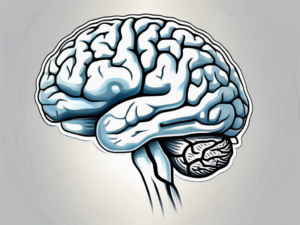
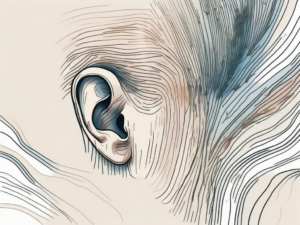
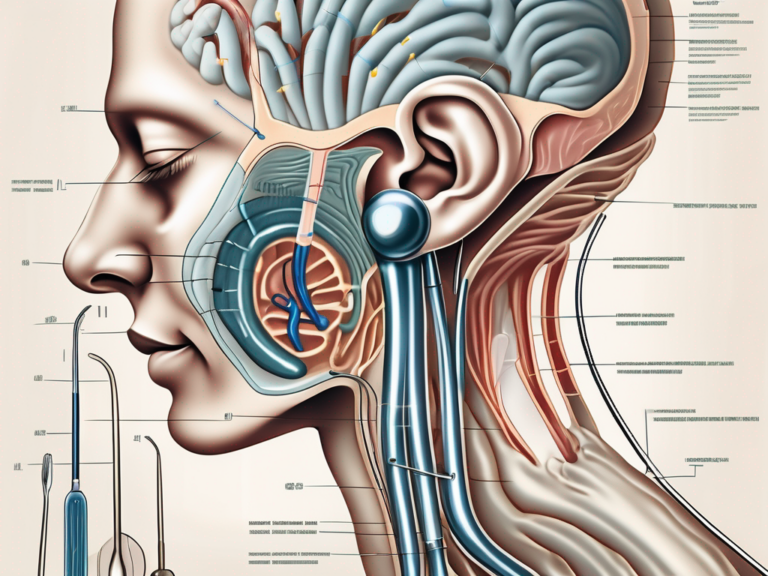
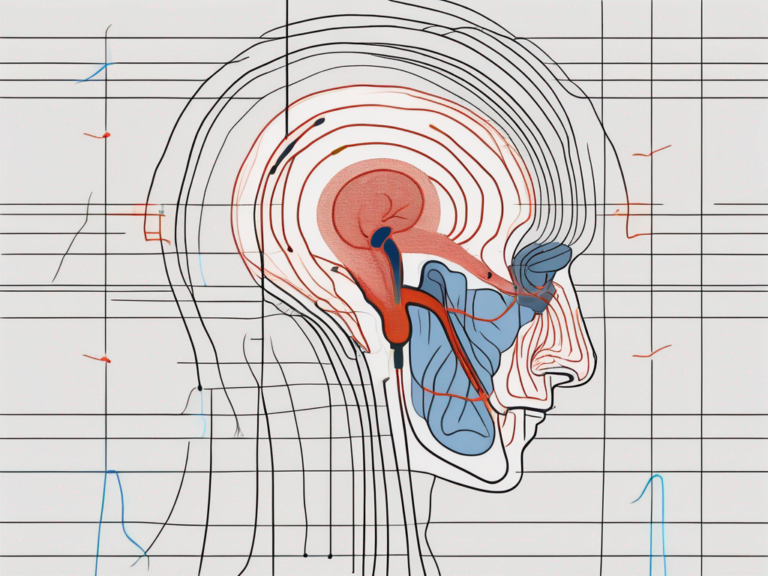
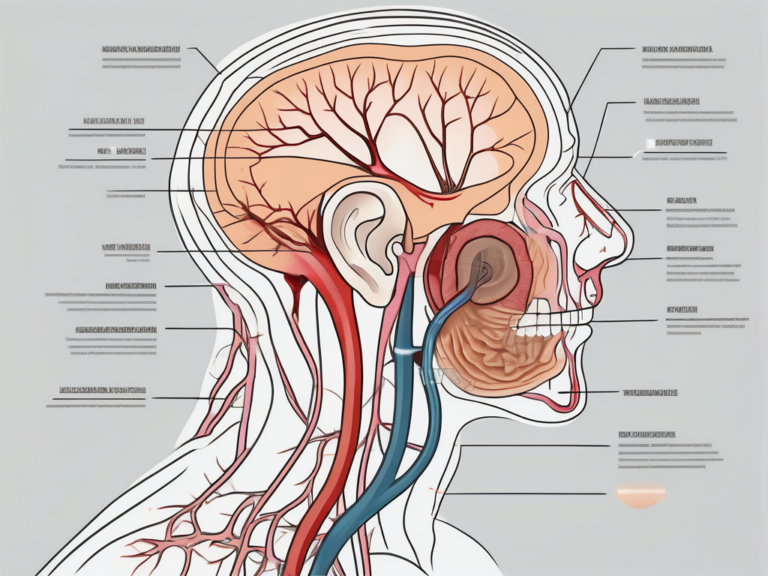
+ There are no comments
Add yours